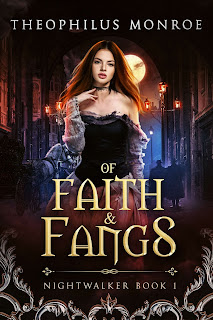Excerpt:
You were standing motionless on the
snow, like all the others, with your face tilted up toward the sky and your
hands raised in greeting.
“There!” I shouted.
Mack didn’t hear me, which wasn’t
surprising—I was competing with 130 decibels. I leaned across the instrument
panel, pointed, and shouted again. “There! Daniel and Rosko. Do you see?”
Wrestling with the controls,
struggling to make the big machine do his bidding, he glanced to his left and
nodded. Even in that moment of life-threatening crisis there was an aura of
relaxed control about him.
“Go,” he mouthed, even before the
helicopter’s wheels had made contact with the pad. “Help them. You’ll have to
be quick.”
Snow and ice, stained pink by the
evening light, were cascading onto the pad. Smoke and steam were so totally
everywhere that you couldn’t tell which was which. As if by magic, Rosko had
emerged from the crevasse, covered in blood, and was struggling up the slope
toward you from fifty paces away. The Seraphim were standing silently, or
chanting, or on the steeper sections they were beginning to stumble and fall as
the ground shook. It was still a couple of hours to sunset, but the full moon
had risen into view over the shoulder of the mountain, indecently big and
close, like an airbrushed fantasy planet from the cover of an old comic book.
Not far to our right, Mount Ararat’s first lava flow in centuries was hissing
and sliding—a lazy, venomous, red- eyed snake, mooching for new victims.
And—
And—
It was hard not to
stand there in the doorway and just stare. The sky, which should have been
blue, was turning before our eyes into an upside-down oil-black lake. And a
thousand gods—spirits, disembodied souls, angels, demons, Architects, what the
hell did I know?—were swirling and foaming and materializing out of it, taking
on human and yet not-human shapes as they dripped down toward the shiny, bright
faces of the entranced, eager-for-immortality Believers. That counts as a
Don’t-Miss, Five Stars, Bucket-List roadside attraction, don’t you think? But
it grabs your attention even more, when it contradicts everything you’ve ever
believed, because your whole life you’ve been a science- minded,
unapologetically rationalist, don’t-give-me-that-crap atheist.
This is not happening. That’s what I said to
myself. Morag, this is so so so not bloody happening. It’s just an illusion.
A hallucination. An extra- deluxe, high-octane, ultra-high-pixel-density
nightmare.
I hate it, D; I totally hate it when I
don’t believe a single word I’m telling myself.
An Interview with Richard Farr
What inspired you to write Ghosts in the Machine?
That the inside of your head is spookily strange and has something unexplained going on inside it.
Lots of books are about mad-up supernatural stuff. That’s fine. But (on the one hand) I just don’t believe in most of the stuff people usually call “supernatural.” And (one the other hand) we all believe in one thing that anyway seems to be supernatural and that really is hard to make sense of. (Philosophers have been trying and failing for hundreds of years.) That thing is consciousness—the simple fact that we experience the world, inside our heads. I could build a robot that says “Ouch!” when it hits its thumb with a hammer. But when I hit my thumb with a hammer, I say “Ouch!” because it hurts! What’s going on here? We evolved from bacteria that (presumably) aren’t conscious, so where did this amazing, infinite inner world come from? The Fire Seekers suggested that religion doesn’t necessarily have good answers to those questions; Ghosts suggests that science doesn’t either …
When or at what age did you know you wanted to be a writer?
The English writer George Orwell said “From a very early age, perhaps the age of five or six, I knew that when I grew up I should be a writer. Between the ages of about seventeen and twenty-four I tried to abandon this idea, but I did so with the consciousness that I was outraging my true nature and that sooner or later I should have to settle down and write books.” My experience exactly—except that I outraged my true nature for a bit longer than that.
What is the earliest age you remember reading your first book?
Remember reading? Not sure. Remember being riveted—unable to put the thing down, even though I really needed to get up and pee? Probably Jack London’s White Fang, when I ten or eleven.
What genre of books do you enjoy reading?
I like to read everything and anything if it’s good! So I guess my favorite genre is Good Books. I like best—and always try to write—the kinds of books that surprise by refusing to fit comfortably into a genre, or that bend or expand a genre. As if the writer isn’t saying “I know you’ll like this,” but “I bet you’ve never even thought of this!”
What is your favorite book?
Just one? Difficult! Can I please have a thousand? No? OK—I’ll go for The Story of Ferdinand, by Munro Leaf. It’s the only great work of literature to have been written (so I’m told) in an hour, and is a “children’s book” you’d have to be dead not to enjoy at any age. The illustrations, by Robert Lawson, are sheer genius.
You know I think we all have a favorite author. Who is your favorite author and why?
The great Victorian novelist Thomas Hardy, because the fictional Wessex in which all his novels are set is in fact the counties of Somerset and Dorset, in England’s West Country, where Hardy lived and I grew up. His landscapes are my landscapes. When I read him, I can smell the grass.
If you could travel back in time here on earth to any place or time. Where would you go and why?
Athens, about 430-380 BCE. From time to time in human history there are sudden eruptions of human talent. Renaissance Italy, Elizabethan England, Vienna around 1915 … but none is more amazing that the golden age of Athens. It was just a single small town, by our standards, but it had Pericles, Euripedes, Socrates—a list of just the major geniuses, in everything from math to sculpture, would go on for pages. More cool, interesting, hyper-talented people per square mile than anywhere else, ever.
When writing a book do you find that writing comes easy for you or is it a difficult task?
I want to lie! I want to say it’s easy! It isn’t. For me, and for a lot of writers at least, it’s something we do only because we can’t not do it. We’re plagued by visions, and we can’t not keep trying to bring those visions to life. (Oh, yes, and we never lose the suspicion that we’re not as good as all those other writers, and should have become house painters instead.)
Do you have any little fuzzy friends? Like a dog or a cat? Or any pets?
I’ve had dogs nearly all my life, mostly very large furry ones. Not at the moment—but I have been looking at petfinder.com ...
What is your "to die for", favorite food/foods to eat?
For breakfast, homemade cinnamon pecan “sticky buns.” I make these using a recipe I adapted from Seattle chef Tom Douglas. (He calls them “Schnecken,” which is German for “snails,” and you can find his recipe online.) They’re a bit of a pain to make, they involve a super-rich fresh yeasted dough and loads of sugar and about a pound of butter, and they are UTTERLY FABULOUS.
Do you have any advice for anyone that would like to be an author?
Start being one—today. Every day, for the rest of your life, write some new words and revise some old ones. Start with a goal of just 50 new words a day, which is couple of sentences. (A mini-story is good, or a half-remembered dream, or a detailed description of that cool bug on the window, including its name, job, and criminal history.) When you’ve done the new piece, put it aside. Then rewrite one of your old pieces so that it’s shorter and sharper, or maybe longer and weirder. Soon you’ll discover that you have a notebook full of story ideas, just waiting to sprout.























.jpg)


%20By%20Daisy%20Belle.jpg)









































1 comments:
Thanks for hosting today! :)
Post a Comment